
Warning: This in-depth report describes scenes that may be disturbing.
Valeria says that she doesn’t remember much from the day she was raped, although it’s like a recurring nightmare that she relives in her memory. The story began like a normal vacation, at a bonfire on Pelada Beach in Nosara. An acquaintance offered her a drink, the first one she had that night, and she started to feel a numbness throughout her body that forced her to close her eyes. After that, everything is confusing.
Memories come to her in a bunch of flashes even months after the attack. She knows that she woke up what seemed like hours later, still on the beach, while that same man was penetrating her and her body wouldn’t respond. She knows she tried to move her hands to push him away from her, but she couldn’t do anything that her brain ordered her body to do, like she was in a sleep paralysis or under an anesthesia that wasn’t done well.
She also knows that staying awake was impossible. Without wanting to, she fell asleep again.
“I wanted to get him off of me but I couldn’t. It was like I was dead,” recalled the Costa Rican during her interview with The Voice of Guanacaste.
She woke up when it was getting light the next day, on the beach and completely alone. It was as if her soul were outside of her body, still dizzy and not knowing how many hours had passed since she took that drink. As best she could, she walked back to her house.
In my mind, I was just thinking how one drink could get me so drunk to have sex with that man. Then I realized, I didn’t have sex or get drunk. He drugged me and raped me,” the young woman said.
Valeria is one of five women who contacted this news outlet to report being victims of sexual assault during parties organized in Nosara between 2019 and 2021.
The five are Costa Ricans and foreigners who were between 18 and 35 years old at the time of the assault, four of them visited Nosara as tourists. They affirm that they were raped by men who live in the town during parties at night in Pelada and in hotels near the area. Three of them fled Nosara immediately after the abuses.
In four of the cases, one or more men approached the victim when she arrived at the party to offer her a courtesy or welcome alcoholic drink. When they accepted that drink, they began to experience a very brief feeling of ecstasy and afterward suffered from numbness throughout their entire body until they lost consciousness for hours.
Three of the victims reported that they woke up briefly during the attack, unable to move their body or articulate words. The other two say they don’t remember anything until hours later, when they woke up in pain and half naked in a different location from the party.
What hurts me the most is that I only remember that man on top of me, but it could have been more people and I just can’t remember. It’s something I have to live with,” lamented Valeria.
The symptoms they experienced are related to Rohypnol, better known as “roofie” or the “rape drug.” It is an illegal substance that has circulated in Latin America since the 90s but, according to the Costa Rican Institute on Drugs (ICD), it took on much more force in 2019 during parties in the country.
When diluted in alcohol, the drug can make it impossible for victims to resist sexual assault and give them complete amnesia for the first few hours while under the effects of the substance.
I. It Starts With a Drink
Rohypnol works silently at the town bonfires. The pill doesn’t taste like anything and has a greenish appearance that, when mixed with alcohol, turns into a liquid of the same color or with blue tones. It can go unnoticed when dissolved in drinks containing curacao, jager, wine, or cocktails with colorings.
In the first few minutes, the women reported that the drink gives a high feeling of happiness and relaxation, similar to liquor. In about half an hour, the ecstasy turns into a sharp drop in the entire body with dizziness and an abrupt need to sleep or at least to shut the eyes. It’s like your soul is leaving your body little by little and, in the end, you just go blank.
The National Institute of Drug Abuse (NIDA) in the United States states that it can take up to six hours after ingesting the substance for victims of ruffians to regain control of their body and their memories. They aren’t necessarily unconscious during that time, but everything that they do is under the effect of the drug and they won’t be able to remember it when the substance leaves their body.
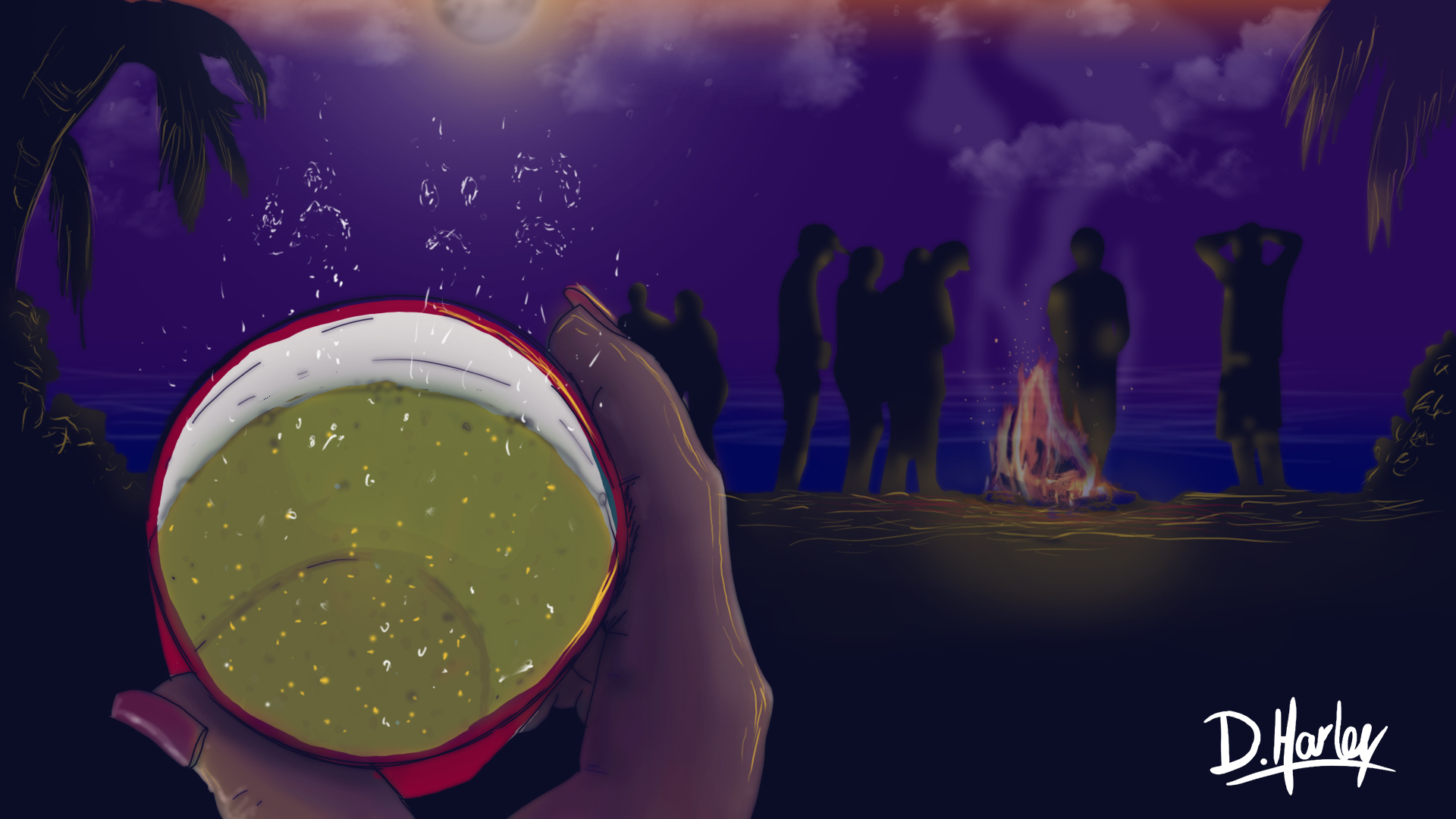
Illustration: Dunkan Harley
The aftereffect, of course, can last for a few hours or up to entire days. For example, Valeria recalls that she spent at least 24 hours feeling that she wasn’t herself, as if she were drunk or under anesthesia. She vomited several times, she couldn’t sleep, had no appetite and had a hard time doing basic daily tasks.
The same thing happened to Jessie, a 20-year-old foreigner. This year, she attended a bonfire at Pelada Beach and, in the midst of the activity, some men came up to her to offer her several types of drinks. She didn’t take any of them because she had to wake up early the next day, but she did accept a soda that the men insisted on giving her. From that moment until she woke up, she doesn’t remember anything else.
The next day, she woke up half-naked in a room inside a house near Pelada, with no one who could explain how she got there, because there was no one else there but her.
After she returned to her accommodations, she spent several days feeling depressed, unable to sleep and having a feeling of anxiety that kept her unintentionally alert. It caused her to shake and made it hard for her to breathe normally. Although she planned to spend several months in Nosara, she fled the following week.
Both the ICD and NIDA document that the drug’s effects include a subsequent unexplained feeling of confusion, depression, trouble sleeping, and severe anxiety. Those symptoms can last for days or even weeks.
II. Memories Surface From Time to Time
Both Valeria and Jessie, as well as Camila and Vanessa— two women who asked that their stories be mentioned only briefly in this article— continue to have flashbacks of what happened to them, months after what happened.
During the interview, for example, Valeria recalled wanting to “jump up and hug everyone” minutes before falling asleep, while the man who gave her the drink followed her movements closely. “It was something I didn’t remember until just today,” she said.
Jessie has vague memories of two people forcibly taking her to a dark place, even though she was babbling that she wanted to go back to the party. Even so, her memory remains blurry.
Rohpynol is not the only substance supplied by abusers to commit these types of sex crimes. According to the U.S. Department of Justice’s Drug Enforcement Agency (DEA), they have also detected the use of drugs such as GHB (antidepressant), ketamine (anesthesia for animals) and large quantities of alcohol during parties in that country to attack the victims.
Roofie, however, is easier to obtain in Latin America, according to the ICD, and it’s the hardest one to distinguish in the body while the person is still conscious since it is perceived as alcohol.
We ask the Judicial Investigation Agency (OIJ) for information on the drugs used in Costa Rica for this type of crime. Although they said they would reply, we hadn’t received any response by the deadline for this article.
The ICD states that Rohypnol can also be provided to victims in other forms, such as fake tablets of LSD, a hallucinogenic substance. That happened to Olivia at a party in Pelada in December of 2019. That time, she went out to party alone and ran into an acquaintance of her ex.
After having several beers together, the man insisted that she take what was supposedly an LSD tablet because he said “she looked very drunk and he wanted to help her reduce the effect.” Olivia said the tablet turned out to be another drug that “knocked her out” in a matter of minutes. The same person who gave it to her raped her while she was unconscious.
“I had already taken LSD before and I can verify that it was not that. It didn’t give me any trip. Instead, it made me feel weak, wanting to sleep immediately. What I remember later is that he was inside me (penetrating her) and even though I wanted to scream or take off, I couldn’t do anything. It was like being dead but feeling everything,” she said.
Olivia spent several days without the strength to even get out of bed, unable to concentrate and with constant suicidal thoughts. At that time, she justified it with her close circle of friends as a result of a depressive disorder.
She never told anyone what happened until a year later when she heard other women living in Nosara telling stories very similar to hers.
I went from feeling a lot of sadness to being furious. While we suffer the traumas, there are men out there feeling very comfortable being rapists,” she said indignantly.
III. The Battle They Decide to Fight
Valeria is the only one of the victims interviewed by The Voice of Guanacaste that has an active legal case in process against her rapist. Since the day of the attack, she affirms that she hasn’t gone to parties or consumed alcohol again. She also suffers from post-traumatic stress disorder (PTSD).
She made the decision to report it legally a few weeks later, although it wasn’t easy. In the end, she said, it seemed the most logical way to avoid it happening to other women and to start a conversation about the problem in town.
Her life revolves around working, asking about her case at the Prosecutor’s Office and trying to warn other women who come to town about what happens at parties, especially since it is a very touristy area. She said that’s why she recounted what happened to her in this interview.
Not all women report sexual assaults for a number of reasons: fear, re-victimization, because they are tourists who were only there for a few days or due to misinformation. According to statistics from the Judicial Power, from 2018 to 2019, the Chorotega region had a 9.4% increase in reports of rape (from 149 to 163) and a 109% increase (from 33 to 69) in complaints of sexual abuse of adults.
In 2020, during the pandemic, reports of rape fell by 17% (134) and although reports of sexual abuse also went down by 29% (49), it’s still a higher figure than in 2018.
Ana Victoria Rojas, an official from the Assistant Prosecutor’s Office for Gender, affirmed that even if a third party reports the incidents, the Prosecutor’s Office must carry out the corresponding investigations of the case. That’s why she encourages people to report sexual crimes that they know about.
Of the four prosecutor’s offices in Guanacaste (Santa Cruz, Liberia, Cañas and Nicoya), the office in Nicoya is the only one that doesn’t have a gender unit. Even so, they are obligated to take the statement of any victim who files a complaint there.
Rojas said that she can’t comment on the cases in this article because they are in the investigation process.
The head of the National Women’s Institute (INAMU) in the Chorotega Region, Melida Carballo, affirmed that INAMU doesn’t keep statistics on these cases in the region since they are difficult to track due to their nature. Although the men involved use the same method to commit abuses, generally the victims are different in each case and most of them don’t live in Guanacaste. The Judiciary is the one in charge.
In addition, it’s hard for women who experience this type of violence to report it due to the length of judicial processes, especially when they don’t live in the country.
Jessie, for example, decided to leave Nosara and return to her home country after the attack. Talking with her parents made her think that returning to the country would only open wounds that she needs to heal.
Proceedings for crimes like rape and sexual abuse can take between five and six years to resolve, according to an investigation by the Gender Commission and Gender Secretary of the Judiciary in 2021.
Almost two years after the abuse, Olivia said that she continues to question whether to report her aggressor or not, since she doesn’t want to subject herself to a “long and revictimizing [process] that comes to nothing.”
I want justice to be done, because he keeps going to parties, he continues to have power and he doesn’t regret anything. He knows what he does. He knows that he hurt me. For that same reason, I don’t know if I’d get into a process like that,” she said.
Valeria, who keeps her case active, stated that the process has been revictimizing and “emotionally overwhelming.” After reporting it to the Nosara police station, she was sent to the judicial branch in Nicoya, then to the same institution in Santa Cruz to do more paperwork and, finally, to San Jose.
“In addition to being sent from one place to another, in the [judiciary] exam, they treated me horrible. They made comments that were out of place and somehow made me feel guilty, as if this was something that I provoked by myself and not the dude who raped me,” the young woman complained.
IV. The Stigma of Speaking Up
When she filed a report, Valeria lost friends in the town where people recommended that she “let it go” or not mention it again. A price that she says she is willing to pay.
The support I had from my friends back then was zero. It’s so strange, I don’t justify it, because people surely don’t know how to react when a woman tells them that she was raped by someone they think well of. They turned their backs on me, but the only thing I can do is continue with my process,” she laments.
Two of the other women interviewed affirmed that they faced discrimination from their close circle of friends in Nosara. That’s why they went to the newly formed feminist group Mujeres Unidas de Nosara (Nosara Women United). There, both discovered that they weren’t the only women that the same thing had happened to in recent months.
The group is an initiative of a dozen women who live in Nosara, formed in March of 2021 due to the “lack of support for women in the town” and “the increase in complaints of sexual assaults in Nosara,” according to the activists themselves, who asked not to be named for safety reasons.
In Nosara, there have always been stories of this (sexual assaults at parties), but in recent years, we’ve seen an increase in women who have started to tell that the same thing happened to them. They tell us that they aren’t just stories,” said one of the activists in the group.
The women activists contacted other feminist organizations, such as INAMU, to equip themselves with more information on how to help other women who have survived this type of sexual violence.
Carballo, the regional head of INAMU, affirmed that the institution will teach several courses in November on measures against sexual crimes of this type in several coastal areas of the region.
V. Fighting Is the Only Option
Nothing will erase what happened to Valeria, Olivia, Jessie, Camila and Vanessa, or any other woman who suffered a similar assault and remains silent. But they all believe that by talking about what happened to them, they will prevent their attackers from repeating the cycle.
Since the beginning of the year, there have been some posters in the bathrooms of the bars in Nosara warning tourists that they should be aware of strangers who offer them food or drinks and not to be alone at parties or bars in town.
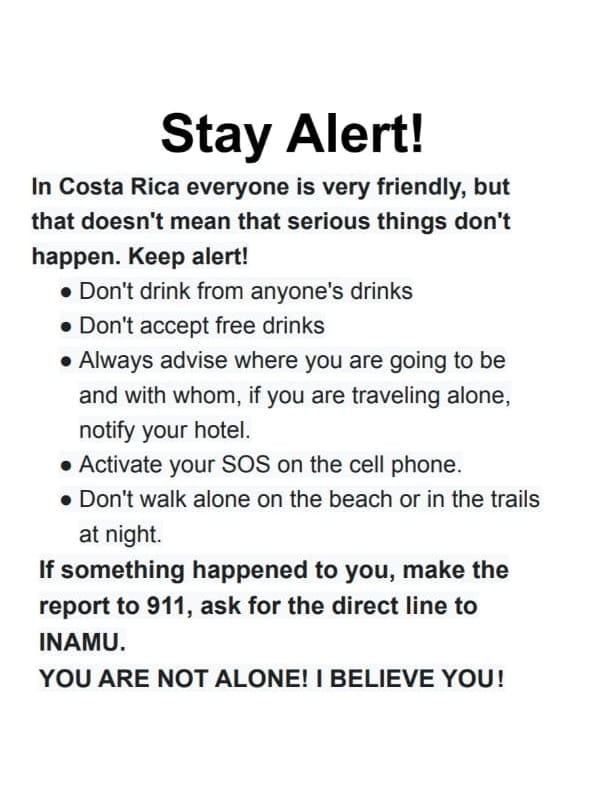
Some women of Nosara put posters like this in the bathrooms of the bars in the community warning tourists. Credit: Nosara Women United
“Nosara is a small town,” the women interviewed for this article agreed. That’s bad and good: although they suffer from lewd looks, the small place also helps them to warn women in more places.
Although the parties continue taking place, the women in the group have already succeeded in communicating to complete strangers that something is happening on their beaches and that everyone needs to look out for one another. “Maybe we’ve saved someone with that poster. I like to think so,” said one of the activists in the group.
___
Journalist’s Note: The names of all of the victims of sexual abuse mentioned in this article were changed to protect their integrities. For the same reason, the stories also omit information that they entrusted to this medium.
Journalist’s Note From October 25: Some details in this story were changed weeks after its publication, at the request of one of the victims, to tell a more accurate story of her case.
If you suffered from a sexual assault in Costa Rica, call 911 or 800-462-6827 (INAMU’s hotline). In Nosara, you can contact the women in the group through their social network.


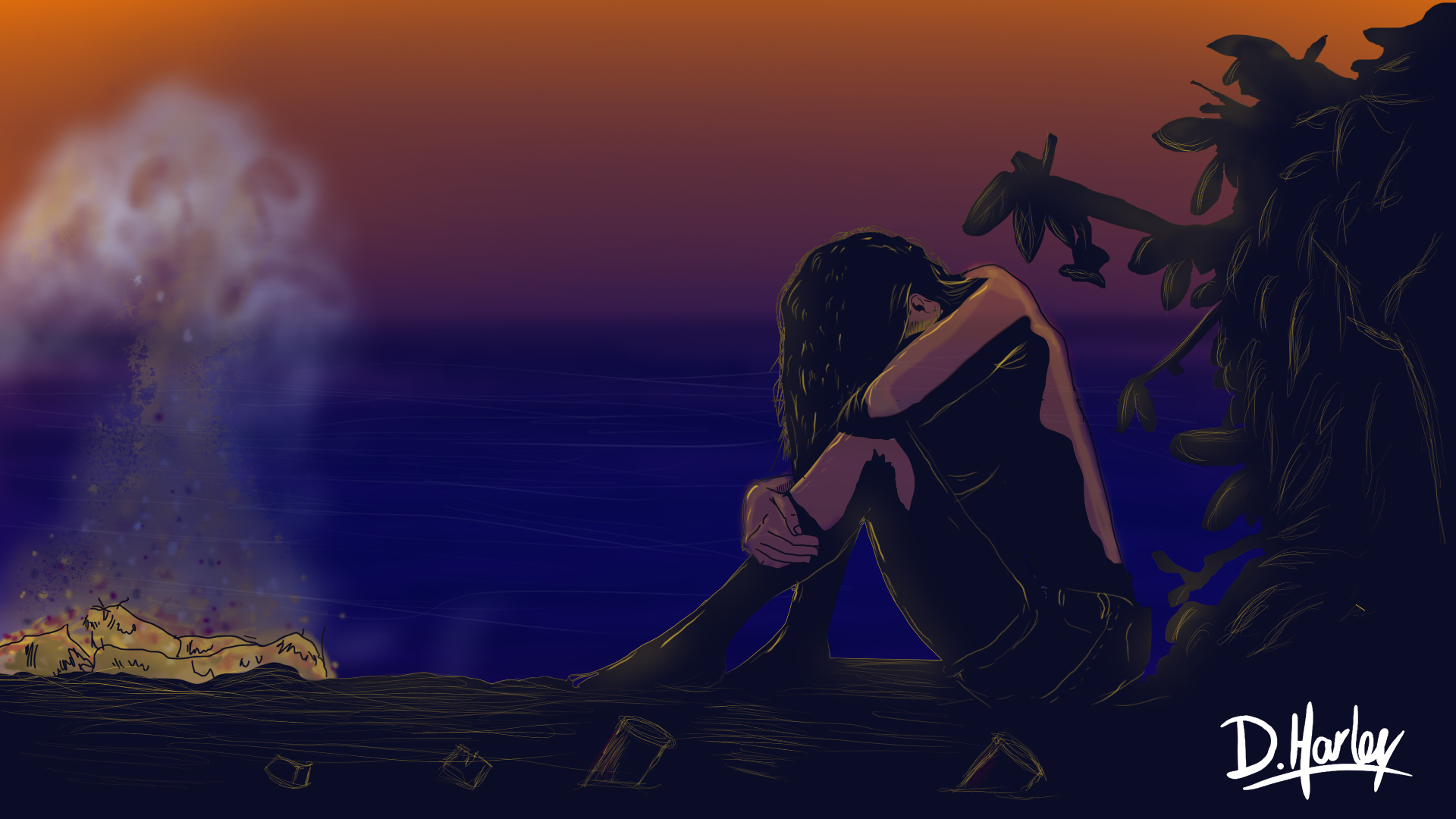
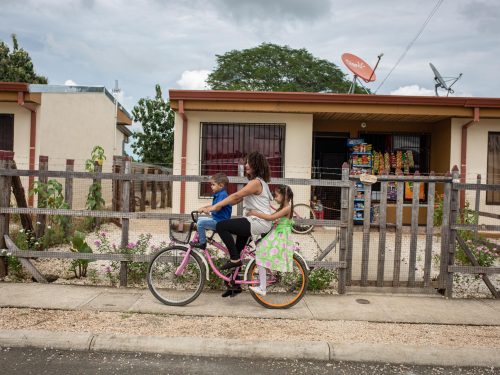
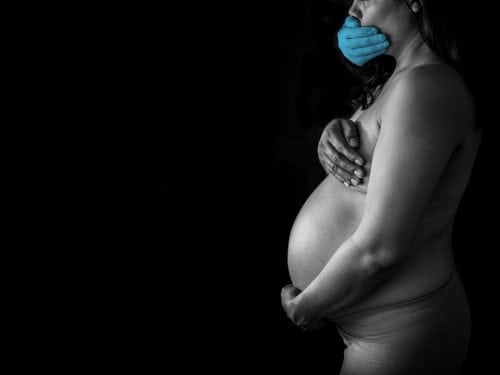
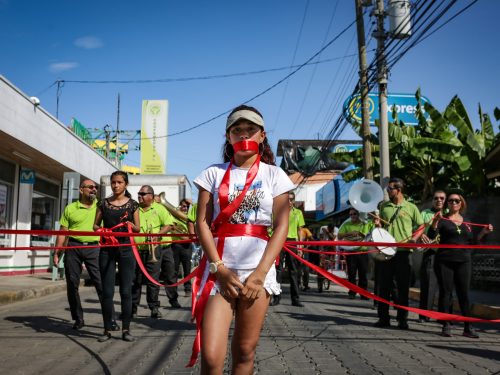

Comments